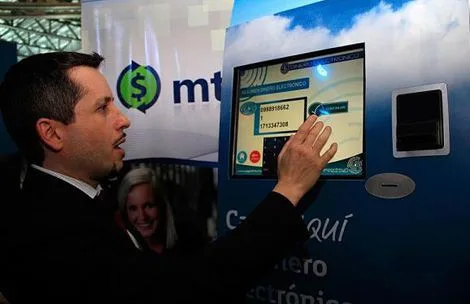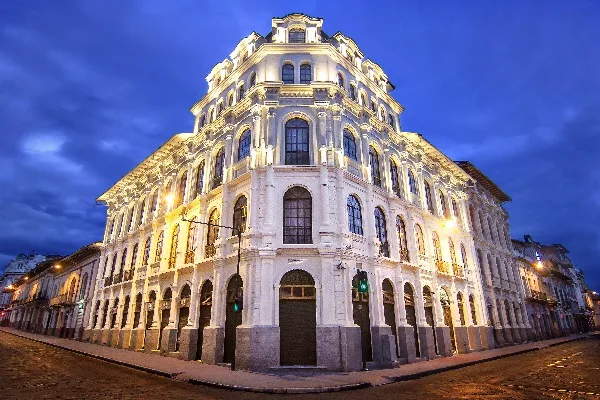Ecuador’s Central Bank electronic money program is far behind schedule; in Cuenca and other cities it is no where to be seen
Ecuador’s ambitious electronic — or digital — money program is lagging far behind early expectations, and is almost entirely unavailable in some cities, such as Cuenca.

An account holder takes a tutorial of the Central Bank’s new electronic money system that will operate by cell phone.
Although it is operational in some cities, including Guayaquil, Loja and Riobamba, businesses that are connected say that few customers use it. The government signed agreements to make the system available for taxi fares in parts of the country, but taxi drivers say it gets little use.
Intended primarily as a service for Ecuador’s lower-income “unbanked” population, and administered by the country’s central bank, its supporters predicted that it would have 600,000 to 800,000 active accounts by the end of 2015. Although the central bank has released so official numbers, a financial consultant who advises the government says the system has signed up less than 20,000 since its start in December.
“The results so far is disappointing,” says Wilson Rodriguez, a Guayaquil consultant. “Soon, I expect the government to come up with a PR campaign to try to re-energize the program.”
According to its design, the new system will work much like mobile phone bank payment systems used in other countries: users will deposit cash into their accounts and can then pay bills digitally using an electronic wallet application on their cell phones.
In Cuenca, it is virtually impossible to use the system. Although all the country’s taxi guilds have agreed to accept electronic money for fares, the guild president in Cuenca says the local contract remains unsigned. “We still don’t have an agreement with the central bank,” says Bolivar Sucushañay. “Most drivers are not convinced that it will work so we will have to see after final arrangements are made,” he says.
A spot check of Cuenca businesses shows that none are connected to the new system. Even financial cooperatives, which the government hoped would sign up large numbers of new customers, are not connected
General manager of the Jardín Azuayo Coop, Juan Carlos Urgilés, says the system is confusing. “We don’t even know how it works, how data is input and managed, so we cannot enroll people,” he says. He also voiced doubts that the target audience of the program will use it.
“The program is intended for the poor people who don’t have bank accounts, but they will be last ones to use it,” says Cuenca accountant Joaquin Santos. “They don’t trust the technology and many of them were hurt in the currency collapse 15 years ago,” he says. “For them, cash is king.”
“Many people were concerned about what will happen to the economy if electronic money is successful,” Santos added. “I say the big concern is the government’s — that very few people will use it. I think we will see minimal support for it.”
All citizens and legal residents of Ecuador are eligible to join the system.

















